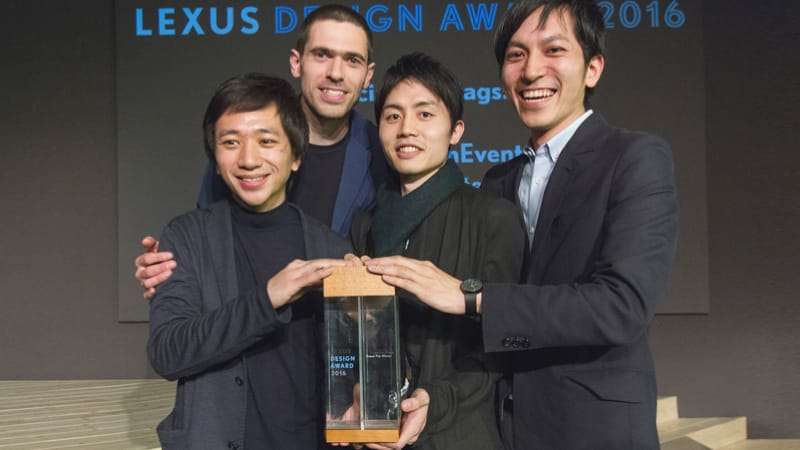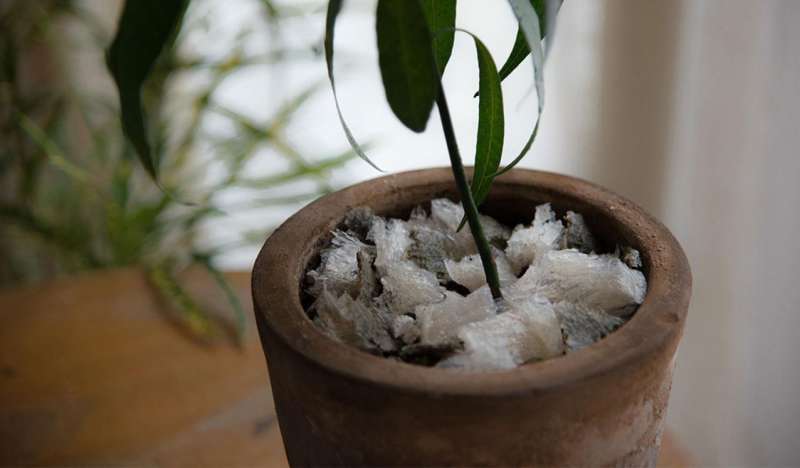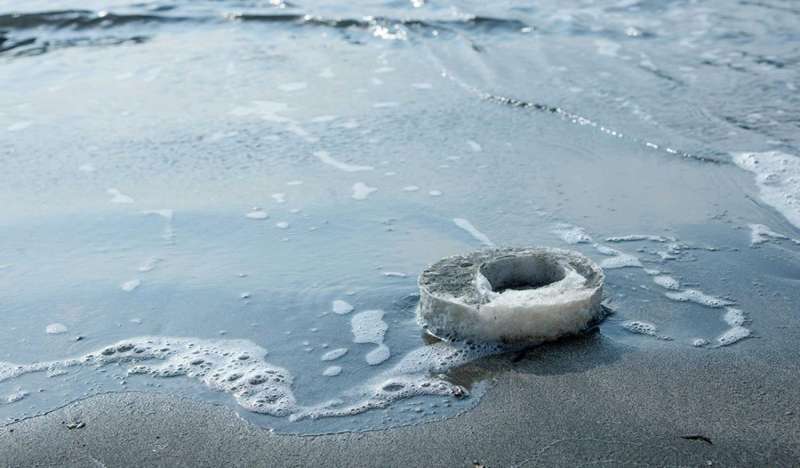(Tech Xplore)—Plastic container discards floating in oceans are an ugly sight and troubling environmental issue; scientists are exploring better ways to assure a cleaner future. That includes exploring materials that are earth-friendly and can replace plastic.
GOOD noted that "even with significant recycling efforts, plastic cannot—unlike aluminum and glass—be recycled over and over again. Plastic is also notorious for its resistance to decomposition, with estimates placing its life cycle somewhere between 500 and 1,000 years. Concerned about the implications of using so much plastic, a new Japanese design company, AMAM, is developing a more earth-friendly way to package goods."
Namely, AMAM is exploring an alternative to plastic which uses agar, a substance from algae. The big news for AMAM this month is that its efforts have resulted in the group being announced as the Grand Prix winner of the Lexus Design Award 2016.
The announcement was part of Milan Design Week. Lexus stated on April 11 that AGAR PLASTICITY, a project that explores using marine algae in packaging, won the grand prize at its annual design competition. This year's award attracted 1,232 submissions from 73 countries, said Vogue.
The description of their winning entry was that "AGAR PLASTICITY is a project exploring how agar, a gelatinous material obtained from marine algae, can be used as an environmentally friendly packaging material alternative to plastic."
Kosuke Araki, Akira Muraoka and Noriaki Maetani are the three designers behind this design group, which they formed in 2015.
Their focus on the potential usefulness of agar for packaging and more was mentored by Max Lamb.
Potential of their agar material may extend beyond packaging, too. Araki said that "It can serve as a material to improve the water-retention property of soil."
In their promotional video, the design trio said the key to their success was in allowing agar to harden as a material that they would then work with.
Their environmentally friendly proposal drew praise. "This is a bold and ambitious experiment, which aims to address one of the biggest pollution problems of our times," said Alice Rawsthorn, Lexus Design Award 2016 judge.
In the team's own words, articulated by Araki: "Goods are usually shipped wrapped in plastic materials. Once unwrapped, they soon become waste or are collected to be recycled." This got them to thinking about alternatives.
Talking about the team's efforts, he said, "Seaweed-derived agar is traditionally consumed as food in Japan, and used in scientific and medical fields worldwide. Sold in a dry state, agar shows porous, feathery structure and is very light despite its volume. These features led us to explore its possibility as packaging material."
Anne Quito, who covers design and architecture for Quartz, talked about what may be next: "AMAM hopes to find a partner who can bring their invention to the market. The team tells Quartz that their first experiment was a success, successfully shipping a fragile bottle from Japan to Italy cushioned with the agar material."
More information: www.lexus-int.com/lexus-design/lexus-design-award/
© 2016 Tech Xplore


























